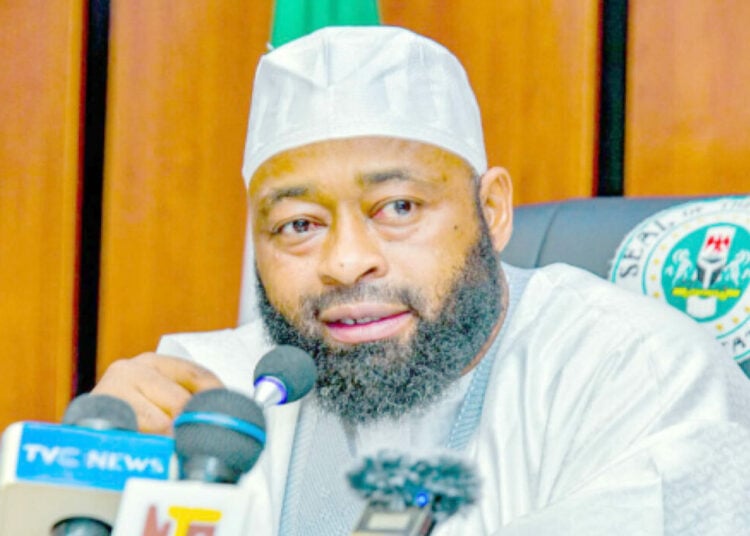Governor Umar Bago of Niger State recently announced a controversial proposal: clerics in the state would now be required to submit their sermons to the Ministry of Religious Affairs for approval before delivering them to their congregations.
According to the governor, the move is meant to prevent the misuse of religious platforms for inciting unrest or attacking government policies. He cited the example of Saudi Arabia, where similar regulations are in place, as justification.
While concerns about the potential abuse of the pulpit are valid and not to be dismissed lightly, this proposed regulation raises significant constitutional and democratic questions. Nigeria, unlike Saudi Arabia, is a pluralistic democracy—not a religious monarchy—and such a policy risks infringing on the fundamental rights that are protected under the constitution.
To begin with, the comparison to Saudi Arabia is flawed and inapplicable. Saudi Arabia is an absolute monarchy where Islam is the official state religion. Its constitution is based on the Qur’an and the Hadith, and the government operates under strict interpretations of Sharia law.
In contrast, Nigeria is a secular state. Section 10 of the 1999 Constitution prohibits the adoption of any religion as a state religion. Our governance structure is built upon the democratic principles of free speech, freedom of religion, and the rule of law—not religious orthodoxy.
Moreover, Saudi Arabia’s political system does not permit the kind of public dissent or political criticism that is allowed and necessary in a democracy. Citizens in such monarchies often operate under tightly controlled public discourse, and dissent is frequently criminalised.
The tragic case of journalist Jamal Khashoggi, who was assassinated for expressing critical views of the Saudi government, remains a chilling reminder of the consequences of curbing freedom of expression.
Nigeria’s constitution, by contrast, enshrines several rights that safeguard citizens against such overreach. Section 38 guarantees freedom of thought, conscience, and religion—including the right to practice and manifest one’s belief in teaching and preaching. Section 39 protects the freedom of expression and the press, ensuring that Nigerians can hold opinions and share information without undue interference. Section 42 prohibits discrimination based on religion, ethnicity, or political beliefs, guaranteeing equal protection under the law.
In principle, the governor’s concerns are not entirely misplaced. Nigeria has experienced instances where religious rhetoric has been weaponised, particularly in the North, where extremist groups like Boko Haram and ISWAP have used distorted interpretations of religion to justify violence. It is, therefore, understandable that a government would want to prevent any similar misuse of religious platforms preemptively.
However, this must be done within the framework of the law and democratic norms. The vast majority of clerics in Nigeria do not incite violence. Instead, many act as moral compasses for their communities, and in some cases, as the only consistent voices holding government accountable. Sermons that question public policy or highlight social injustice are not threats—they reflect a healthy democracy where diverse opinions can flourish.
Indeed, religious leaders, like citizens, can criticise government policies. So long as their commentary does not cross into hate speech or incitement to violence, such criticism should be seen as part of the checks and balances of democratic governance. Curbing this right under the pretext of maintaining public order is a slippery slope that could easily be exploited to silence dissent.
This proposed sermon regulation also opens the door to arbitrary censorship. Who decides what is appropriate? What criteria will be used? Will it affect all religions equally or disproportionately impact specific groups? These questions are practical and constitutional, highlighting the dangers of a policy that grants such sweeping powers to a government agency over religious expression.
Governor Bago has, to his credit, taken some commendable steps since assuming office. His bold agricultural reforms, for instance, have revitalised Niger State’s economy and positioned it as a potential food hub in the country. These initiatives should be at the forefront of his administration—programmes that directly improve the lives of citizens, not policies that risk alienating them.
Attempting to control sermons is a legal misstep and a distraction from the pressing governance challenges that need urgent attention—education, healthcare, infrastructure, and security. If the governor is genuinely concerned about harmful rhetoric, a more constructive approach would be to engage religious leaders in dialogue, promote interfaith education, and support community programmes that foster tolerance and civic responsibility.
In a democracy, criticism is not something to be feared—it is a necessary ingredient for growth. Government officials should welcome constructive criticism as a form of feedback that helps them do better. Efforts to suppress it, however well-intentioned, often result in greater public distrust and unintended consequences.
Governor Bago’s administration would do well to reconsider this policy. The pulpit is not the enemy of democracy; it is one of its most powerful allies when used responsibly. Regulation should not come at the expense of fundamental freedoms.



